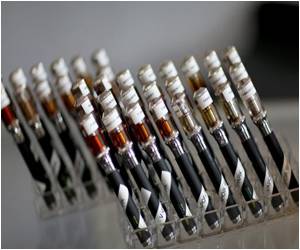The soaring $2 billion market in e-cigarettes which is presently free from federal oversight will be levied with restrictions which has been proposed by US regulators.

"This proposed rule is the latest step in our efforts to make the next generation tobacco-free," said Health and Human Services Secretary Kathleen Sebelius in a press release announcing the reform.
The proposal by the US Food and Drug Administration (FDA) would bring these products under the same rules that already apply to traditional cigarettes.
Sellers would be required to enforce a minimum age restriction on those who wish to buy the products, including requiring identification.
Companies would be barred from handing out free samples, and would be required to include health warning labels and to seek FDA approval before marketing a new product.
And they would be prevented from advertising a lower health risk, compared to traditional cigarettes, unless the FDA confirms scientific evidence backing up the claim.
Advertisement
"The proposed rule would give the FDA additional tools to protect the public health in today's rapidly evolving tobacco marketplace, including the review of new tobacco products and their health-related claims," he added in the statement.
Advertisement
Their use by young people has been booming: a December study by the US Centers for Disease Control and Prevention estimated that 10 percent of high school students had used e-cigarettes.
A report earlier this month found that of the nation's nine manufacturers of e-cigarettes -- which are marketed under various names including vape pipes or e-hookahs -- six sell flavors such as Cherry Crush or Chocolate Treat that could appeal to children.
Most also have provided free samples at hundreds of events, including youth-oriented concerts, while seven of the companies broadcast TV or radio advertising.
Source-AFP







